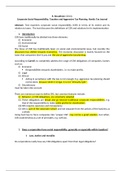Samenvatting
Summary on R. Knuutinen (2014). Corporate Social Responsibility, Taxation and Aggressive Tax Planning.
- Instelling
- Maastricht University (UM)
Summary on R. Knuutinen (2014). Corporate Social Responsibility, Taxation and Aggressive Tax Planning. Nordic Tax Journal, (1), pp. 36-75.
[Meer zien]




